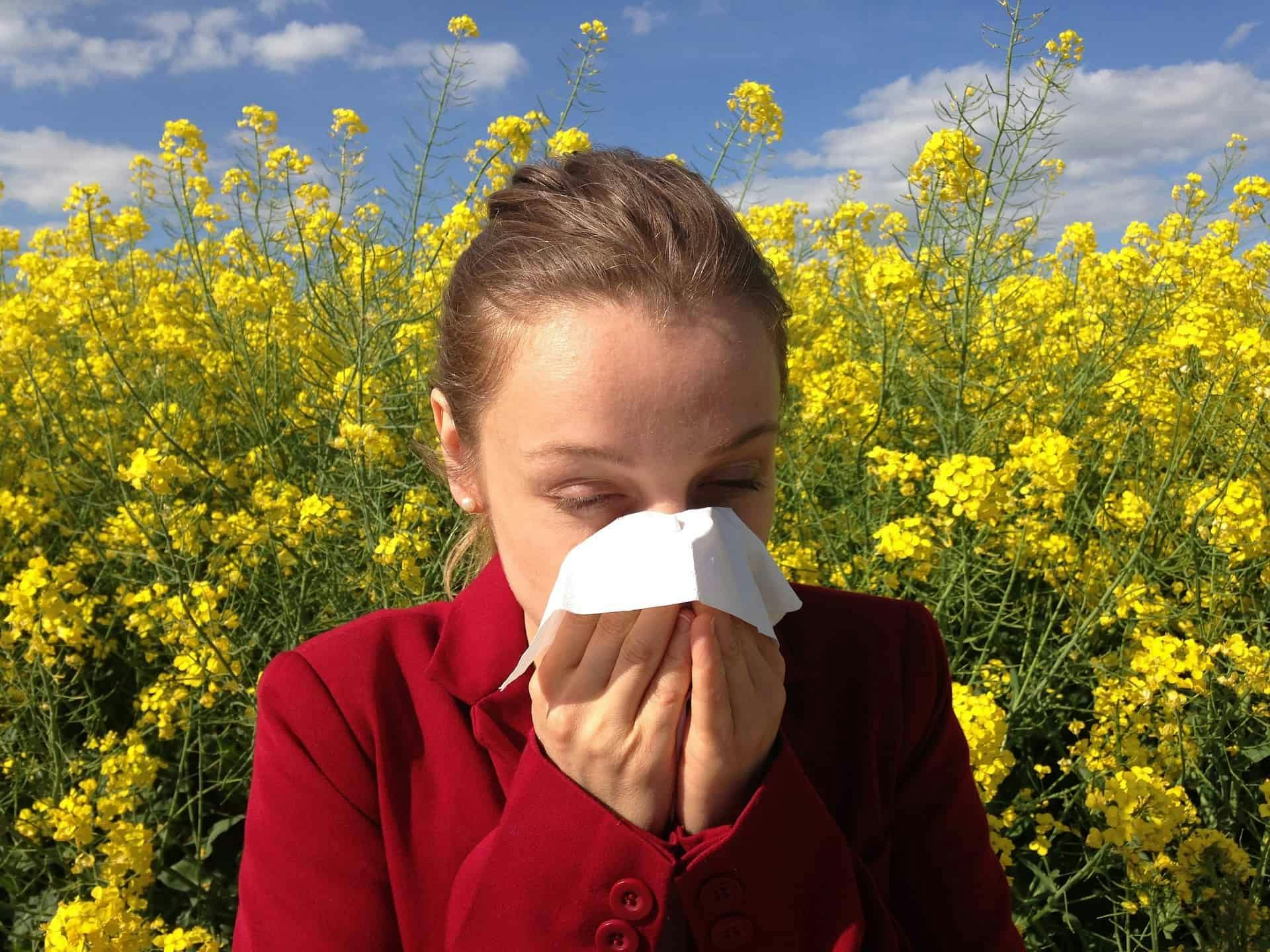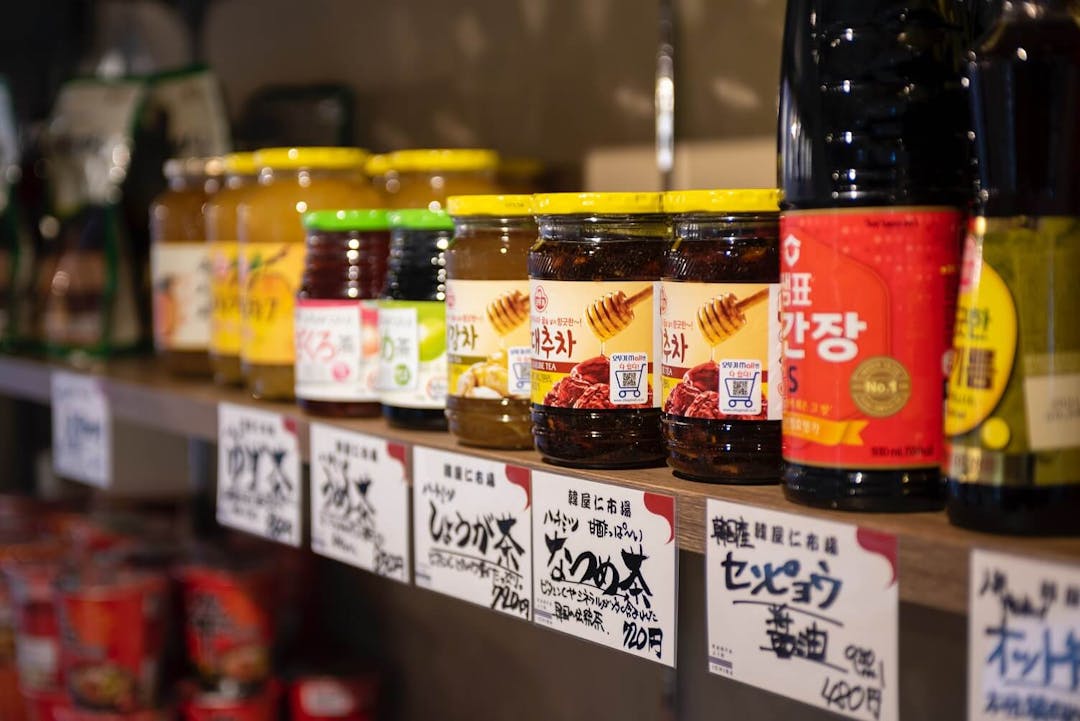


Find foods you can eat.
Introduction to a Low Histamine Diet
Published on January 22, 2023Do you experience skin rash, sinus congestion, migraines, fatigue or gut upset, especially after eating? If so, you might have Histamine Sensitivity. These symptoms are often mistaken for an allergic reaction or even IBS (Irritable Bowel Syndrome). In reality, they may just be your body reacting to an oversupply of histamine.
What is histamine?
Histamines are a chemical that your immune system makes as part of your body’s immune response. This is typically in response to things like pollen, dust or pet hair. Your body’s intention is to keep you safe, but an overreaction can make you feel a variety of symptoms. These symptoms include sinus congestion, hives, bloating, constipation, diarrhea, brain fog, migraines and fatigue.
What are symptoms of histamine intolerance?
| Digestive | Airway | Skin | Central Nervous System |
| Constipation | Sinus congestion | Rash | Headaches & migraines |
| Diarrhea | Post nasal drip | Hives | Vertigo |
| Pain | Hay fever | Eczema | Insomnia |
| Bloating and gas | Asthma / wheezing | Angioedema (swelling) | Regulation of body temperature |
| Reflux | Chronic cough | Urticaria (itching) | Poor concentration |
| Nausea | Irritability and restlessness | ||
| Sore throat | Fatigue | ||
| Mouth ulcers | Anxiety and depression |
How is food related to histamine?
- Histamine containing foods: Some foods such as alcohol, avocado, and spinach are naturally high in histamines. If someone is sensitive to histamine, they may experience symptoms after consuming these foods.
- Histamine liberators: Some foods, while not naturally high in histamine themselves, can trigger the release of histamine from the body’s mast cells and basophils. Example histamine liberators include strawberries, onion and tomato.
- Diamine oxidase inhibitors: Diamine Oxidase (DAO) is an enzyme that is responsible for breaking down histamine in the body. It is thought that some foods like alcohol inhibit the DAO enzyme and can contribute to histamine accumulation in the body.
What is a low histamine diet?
A low histamine diet limits histamine-containing and histamine-liberating foods for a period of time. The goal is to see if you feel better. If you do, the diet is followed by a gradual reintroduction to identify your personal tolerances and thresholds. There are many resources for this on the internet or that can be provided by your dietitian. The most-well known food chemical diet is the SIGHI diet. Given that there is a lot of outdated information over the internet, it is important that you follow evidence-based resources that are updated regularly.
What is a food chemical sensitivity diet?
Histamine is not the only type of food chemical. In fact, there are many other types of chemicals that can trigger reactions in sensitive people. These include:
- Other amines: There are multiple types of biogenic amines found naturally in foods. Histamine is one type of amine, but others include tyramine, octopamine, and tryptamine.
- Salicylates: Salicylates are natural chemicals made by plants. They help protect plants against disease, insects and fungi, but they can also trigger reactions in sensitive humans by increasing production of histamines.
- Glutamates: Glutamate is an amino acid naturally occurring in many foods and produced by the body.
- Additives: Some food additives or preservatives contain salicylates or amines. Many people who are sensitive to amines or salicylates are also sensitive to additives as well. Example additives include food colorings like yellow #5, benzoates, sorbates, nitrates and propionates.
At Everyday Nutrition, we prefer to use the Royal Prince Alfred Hospital (RPAH) diet for assessing food chemical sensitivity. The RPAH diet checks for sensitivity not only to histamine but to other amines, salicylates, glutamates and additives as well. For example, it’s not uncommon for someone to be sensitive to histamine containing foods but not histamine liberators and vice versa. In this case, the RPAH diet allows us to only limit what you are sensitive to and not over restrict unnecessarily.
How to start a low histamine or food chemical elimination diet?
There are three phases of a food chemical elimination diet. The process begins with an Elimination Phase where the person removes all food chemicals from their diet for a period of 2 to 6 weeks. If a person is in fact sensitive to food chemicals, their symptoms would improve in this phase of the diet. Be aware that during the first 1-2 weeks on the elimination diet, about 50% of people who are histamine sensitive will experience “withdrawal” symptoms. This can make you feel lousy for a few days but is a sign you are on the right path. Push through the symptoms and they will settle.
The second phase of the diet focuses on identifying which chemicals a person is reactive to by reintroducing them, one category at a time, in a structured and methodical process. This allows you to identify which molecules make you feel unwell and which ones have minimal or no effect.
The third phase of the diet is a maintenance phase. In this phase, you limit the chemicals that make you feel poorly and resume eating the other types of chemicals. It’s important to know that although food chemicals can make you feel lousy, they do not cause permanent harm or damage to your body. It’s perfectly OK if you occasionally choose to eat something you know you are sensitive to and just live with the symptoms.
When it comes to food chemicals and histamines, there is a lot of conflicting information online. Information may also be outdated or not suited to a person’s particular needs. It is always important to receive and utilize information provided to you by your dietitian or from the Royal Prince Alfred Hospital.
Who should follow a low histamine or low chemical diet?
Some of the things your dietitian might consider when deciding if this diet is appropriate for you are if:
- You’ve tried a low FODMAP diet and not found relief.
- You’ve had inconsistent results on a low FODMAP diet.
- You have other symptoms such as skin, sinus, or neurological symptoms in addition to or in place of digestive symptoms.
- The foods that you tolerate well and the foods that trigger your symptoms align well with the trigger foods of a low histamine or low chemical diet.
Seeing a dietitian is always key to assisting you with the direction of elimination you need to follow. Specialist dietitians are also very experienced in identifying common patterns in your symptoms and food intake. They can use this information to guide the direction to take with diet.
Who should not follow a low histamine or low chemical diet?
Diet is often seen as a natural and safe method to manage symptoms; however, it doesn’t come without risks and disadvantages. A low chemical or low histamine diet is complex and restrictive. It can be difficult to manage without leading to deficiencies or malnutrition. If you are already underweight or struggling to maintain weight, it may not be sensible.
Additionally, if you have had struggles in the past with your relationship with food or even disordered eating behaviors, you may opt to try other approaches before restricting your diet.
If your symptoms and trigger foods clearly warrant a different approach (e.g., a Low FODMAP diet), you may want to try that first.
Finally, it may just not be the right time for any number of reasons, and that’s ok. Getting the timing right is important. You can always explore other options and come back to the diet in the future. You need to be in the right head space to give it a try. Your dietitian will help guide you towards the most appropriate option based on your situation.
Mast Cell Activation Syndrome Diet (MCAS)
There is most definitely cross over between food chemical sensitivity, histamine intolerance and MCAS. Certainly, some people with MCAS benefit from a low chemical or low amine diet. In this situation, it is usually not diet alone that is the answer. If this is you, we suggest seeing a specialist dietitian to assess which approach is best for your needs.
Helpful tips when starting a low histamine or low chemical diet
- Set yourself up properly. Seeing a dietitian can make or break your success. He or she can plan the right approach for you and recommend suitable products. Our dietitians at Everyday Nutrition specialize in histamine diet and food chemical sensitivity, and we are happy to help with zoom consults.
- If you want to pursue a food chemical elimination diet, purchase the RPAH Food Intolerance handbook and the Friendly Food recipe book. They have extensive information on foods to consume as well as easy to follow recipes.
- Use the RPAH handbook to make a shopping list of foods that need to be swapped. For example, swap bell peppers for carrots.
- Set aside a spot in your pantry to have go-to snacks, meal options and some treat foods. Pop any foods that are high chemical at the back where you are not going to be tempted by them.
- Keep a diary of your food intake. This way, your dietitian can monitor your symptoms alongside what you have eaten.
Things to look out for on a low histamine or low chemical diet
- Consume any leftovers within 24 hours or freeze immediately for a later date. Histamine starts to form on food rapidly.
- Slow cooking and char grilling increases the histamine/amine content of foods. Keep cooking times short and to a maximum of 1-2 hours.
- Supermarket meats have nitrates & gases inside their packets. Choose meat from a local butcher.
- Aged or cured meat develops amines. Buy meat fresh and cook or freeze on the same day.
- Do not keep eggs outside of the fridge. Discard after a few weeks in the fridge.
- Shredded cheese usually contains sorbates, whereas cheese purchased in blocks is free from this additive.
- Aged cheese is very high in amines.
- Do not keep dairy for longer than 3 days after opening.
- Seafood forms amines/histamines very quickly.
- Not all people who are histamine sensitive tolerate fresh cheese.
- Cottage cheese often has preservatives and can form tyramine if not fresh.
- Tea contains large amounts of salicylates/histamine liberators.
Histamine in foods
This list includes examples of foods high in histamine and other food chemicals. For a full list, purchase the RPAH Food Intolerance handbook or download the Fig app.
| Salicylates (histamine liberators) | Fruits, vegetables, herbs, spices, tea, coffee, wine, juice, nuts and aspirin |
| Amines (Histamine containing) | Aged meat, fish and cheese, over-ripe bananas, avocados, tomatoes, red wine, beer and chocolate |
| Glutamates (Histamine containing) | Tomatoes, grapes, mushrooms, cheese, and wine |
| Glutamates/flavour enhancers | MSG found in Chinese food and savory snacks |
| Sulphites | Dried fruit, juice, cordial, soft drinks, wine and sausages |
| Propionates | Bread and bakery products |
| Sorbates | Juices, soft drinks, dairy products, dips, dried fruit, bread and bakery products |
| Benzoates | Juices, sports drinks, soft drinks and dips |
| Nitrates | Preserved meats such as ham, salami and bacon |
| Anti-oxidants | Savory snacks, crackers and oils |
| Artificial colours & Annatto | Confectionary, juice, soft drinks, cakes, yogurts and ice creams |
Keep in mind that research into food chemicals is limited. Additionally, reactions to histamines are quite nuanced from person to person.
You may come across foods or ingredients that are not tested or do not have any data. In this case, we recommend avoiding these during the elimination period. You can test your personal tolerance to them once you get to the maintenance phase to determine your individual sensitivity.
How food chemicals / histamine cause symptoms
Unfortunately, it’s not well understood how histamine and food chemicals cause symptoms. It is thought that some people metabolize histamines faster and others metabolize them slower. If you are a slow metabolizer, you may end up with a build-up of histamine in your system over a few meals or days. This leads to higher overall levels than someone who is a fast metabolizer.
Another consideration is to look at the enzyme that metabolizes ingested histamine called Diamine Oxidase (DAO). Alcohol can block DAO and diminish your ability to metabolize ingested histamine.
It is important to note that stress or high levels of cortisol can make you more sensitive. For this reason, including stress management techniques such as mindfulness is always a good idea.
List of foods high in histamine
To get a list of foods high in histamine and other food chemicals, visit these resources:
- RPAH Food Intolerance handbook
- Use the Fig app to scan foods at the supermarket to determine if they likely contain high histamine ingredients. You can also use Fig to find foods likely low in histamine at 100+ grocery stores.
Final thoughts:
In summary, consider a food chemical sensitivity if you cannot find a medical reason for your symptoms. It may be worth exploring a low chemical diet or histamine diet with your dietitian. Identifying and removing your triggers can dramatically improve your symptoms and increase your quality of life. As always, it’s best to work with a dietitian.
About the author
Liz Radicevic is an Accredited Practising Dietitian (APD) based out of Melbourne, Australia. She specializes in food sensitivity and gut issues such as Celiac and IBS including FODMAPs and food chemical sensitivity. Liz loves helping people to become the best version of themselves without unnecessary restriction. She knows what it’s like to live with IBS and wants you to know that you’re not alone.
Quickly find groceries that are likely low histamine with the Fig app or see a list of products online.
 Introduction to a Fructose-Free Diet
Introduction to a Fructose-Free Diet Low FODMAP Condiments: Ketchup, Mayo, Honey & more
Low FODMAP Condiments: Ketchup, Mayo, Honey & more